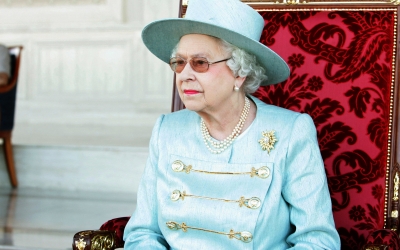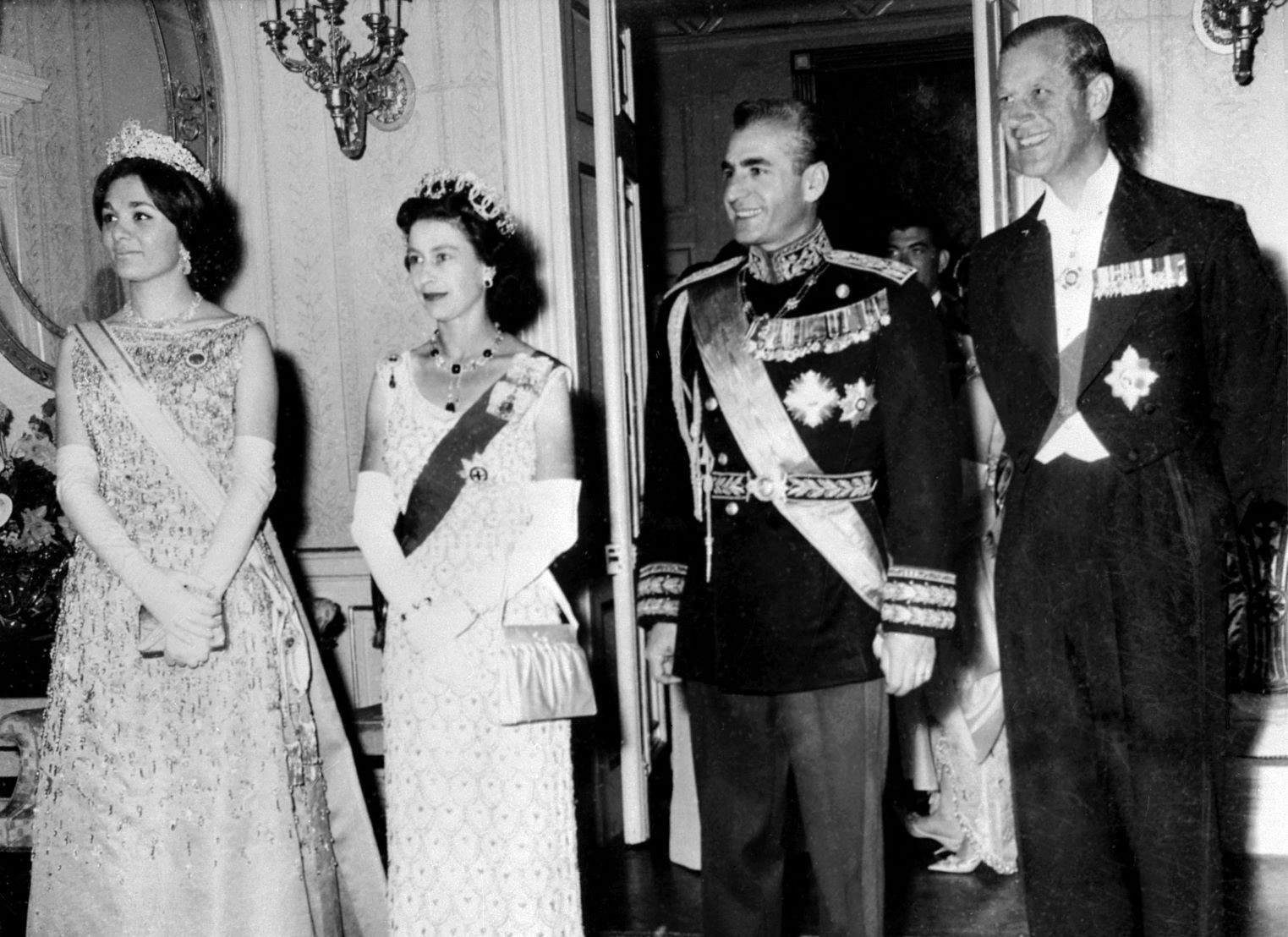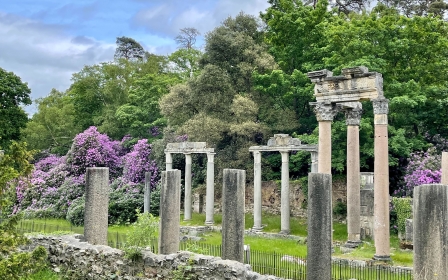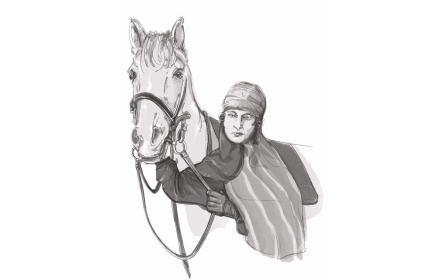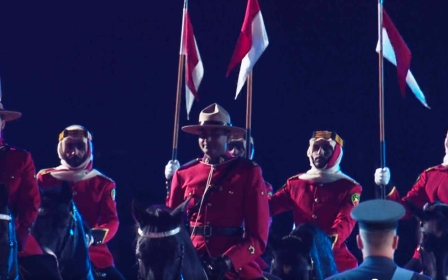Queen Elizabeth II dies at 96
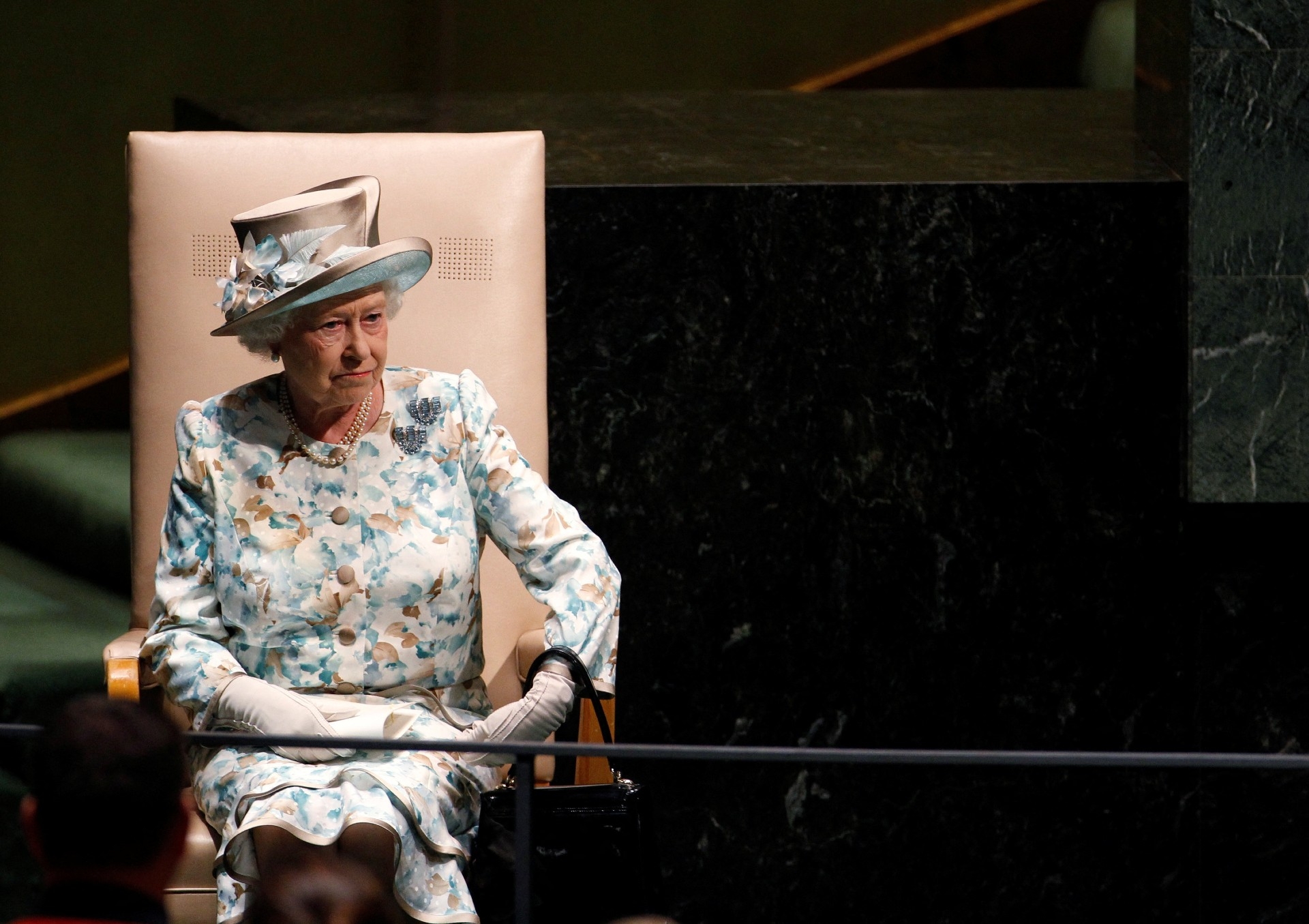
Queen Elizabeth II has died at the age of 96, Buckingham Palace said on Thursday.
She had been under medical supervision at Balmoral Castle in Scotland, where she died surrounded by members of her family.
"The Queen died peacefully at Balmoral this afternoon," Buckingham Palace said in a statement.
"The King and The Queen Consort will remain at Balmoral this evening and will return to London tomorrow," it added, referring to the queen's successor, Charles, and his wife Camilla.
Elizabeth II was the longest-reigning monarch in British history, ruling since her father George VI died in February 1952. Charles, aged 73, formerly the Prince of Wales, will be known as King Charles III.
New MEE newsletter: Jerusalem Dispatch
Sign up to get the latest insights and analysis on Israel-Palestine, alongside Turkey Unpacked and other MEE newsletters
"I know her loss will be deeply felt throughout the country, the realms, the Commonwealth and by countless people around the world," he said in a statement.
Charles is the oldest king to step into the position in the history of the United Kingdom.
The UK's newly installed prime minister, Liz Truss, said the queen was "the rock on which modern Britain was built" and was a personal inspiration to her.
"Our country has grown and flourished under her reign. Britain is the great country it is today because of her."
Condolences from around the world
Condolence messages were shared by leaders from around the world.
US President Joe Biden called the queen a "stateswoman of unmatched dignity and constancy".
"In a world of constant change, she was a steadying presence and a source of comfort and pride for generations of Britons," according to a White House Statement. "The thoughts and prayers of people all across the United States are with the people of the United Kingdom and the Commonwealth in their grief."
Biden added that he was eager to continue Washington's "close friendship" with King Charles.
Former US President Barack Obama hailed the queen's "legacy of tireless, dignified public service", while Former President Trump called it "a sad day".
Saudi Arabia's King Salman bin Abdulaziz Al Saud said: "Her majesty was a role model for leadership that will be immortalised in history."
Saudi Crown Prince Mohammed bin Salman, the kingdom's de facto ruler, said the world will remember the great impact and the great deeds she did throughout her career.
French President Emmanuel Macron said in a tweet that the queen was a friend of France, and a "kind-hearted queen who has left a lasting impression on her country and her century".
UN Secretary-General Antonio Guterres said Queen Elizabeth II was a good friend of the United Nations, having visited its New York headquarters twice, fifty years apart: "She was deeply committed to many charitable and environmental causes and spoke movingly to delegates at the COP26 climate talks in Glasgow."
"I would like to pay tribute to Queen Elizabeth II for her unwavering, lifelong dedication to serving her people. The world will long remember her devotion and leadership."
Canada's Prime Minister Justin Trudeau said: "[The] Queen was a constant presence in our lives and her service to Canadians will forever remain an important part of our history and our country's history."
German Chancellor Olaf Scholz commended her commitment to German-British reconciliation after the Second World War, and said she was a role model even in Germany: "She will be missed, not least [for] her wonderful humour."
Italian Prime Minister Mario Draghi praised the queen as a "beloved" monarch who represented the UK and the Commonwealth with "balance and wisdom".
Pakistan's Prime Minister Shehbaz Sharif said: "Pakistan joins the UK and other Commonwealth nations in mourning her death."
Ghanaian President Nana Akufo-Addo said the Ghanaian people had fond memories of her "friendliness, elegance, style and sheer joy she brought to the performance of her duties".
Queen Elizabeth II and the Middle East
The queen was one of the most widely travelled heads of state in history, visiting the majority of countries in the Middle East and North Africa.
That included a February 1979 visit to the Gulf, which consisted of trips to Kuwait, Bahrain, Saudi Arabia, Qatar, the United Arab Emirates and Oman. Iran had also been on the agenda, though the turmoil surrounding the Islamic Revolution altered the plans.
The following year she embarked on state visits to North Africa, landing in Tunisia, Algeria and Morocco. During her reign she also visited Libya, Iran, Sudan, Turkey and Jordan.
Hundreds of global leaders visited the queen during state visits to the UK, including several Arab rulers.
Among them were four successive kings of Saudi Arabia and Syrian President Bashar al-Assad in December 2002, nine years before the civil war broke out in his country that would turn him into a pariah.
On one visit in 2003, Elizabeth drove the then Saudi King Abdullah, King Salman's half brother, around Balmoral. The king, according to a former UK ambassador to Saudi Arabia, asked the queen to "slow down and concentrate on the road".
In recent years, her close relationship with governments in the region linked to human rights abuses had come under scrutiny.
Earlier this year, members of Bahrain's Defence Force accompanied the queen from the Royal Windsor Horse Show, days after MPs urged her to "consider taking the morally correct stance" and revoke her personal invitation to the king of Bahrain.
She had also maintained a long-standing relationship with Dubai ruler Sheikh Mohammed bin Rashid al-Maktoum, who a British judge ruled was abusing his ex-wife and keeping both his daughters captive after kidnapping them. The two had not been seen together since that court judgement.
A report last year revealed that members of the British royal family had met with autocratic Middle East monarchies more than 200 times since the suppression of the Arab Spring began more than a decade ago.
During her reign, the queen had been given an array of jewels from foreign leaders, including several lavish gems from the Middle East.
Among them were the King Faisal diamond necklace, gifted by the eponymous Saudi monarch in 1967, and the King Khalid necklace given to her during a 1979 visit. The latter was often worn by Princess Diana.
During that 1979 Gulf visit, the queen was also presented with the Qatar pearl and diamond demi-parure - a matching earring and necklace set - by the state's then-emir Sheikh Khalifa bin Hamad Al Thani.
Middle East Eye delivers independent and unrivalled coverage and analysis of the Middle East, North Africa and beyond. To learn more about republishing this content and the associated fees, please fill out this form. More about MEE can be found here.


